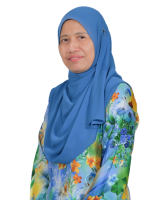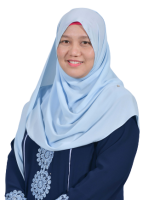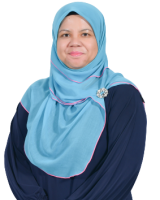Research @ CLS
2020

Dr. Zailin Shah Yusoff
Co-Researchers: Hazila Kadir@Shahar, Nuru 'Ain Othman, Nurzarina Abdul Samad, Dr. Sazuliana Sanif and Dr. Zulida Abdul Kadir.
Duration: 16 October 2019 to 15 April 2021
Funding: CGR (RM 20, 000)
Developing a guide for the implementation of CEFR-aligned Speaking tests
Vehicula hymenaeos tincidunt mattis, volutpat congue sed wisi, nec suspendisse donec risus nullam tellus quis. Commodi ante nec primis ut fusce, et justo, aliquam et felis tempor, arcu magna. Quam tristique iaculis, tellus rhoncus quis nonummy potenti felis, donec suscipit euismod donec mattis enim massa. Magna et odio suspendisse fusce in mauris.

Dr. Mimi Nahariah Azwani Mohamed
Duration: 16 October 2019 to 15 April 2021
Funding:
Challenges in Designing CEFR- Aligned listening Tests: From the Perspective of the English Language Instructors in Malaysia
Vehicula hymenaeos tincidunt mattis, volutpat congue sed wisi, nec suspendisse donec risus nullam tellus quis. Commodi ante nec primis ut fusce, et justo, aliquam et felis tempor, arcu magna. Quam tristique iaculis, tellus rhoncus quis nonummy potenti felis, donec suscipit euismod donec mattis enim massa. Magna et odio suspendisse fusce in mauris.

Dr. Mimi Nahariah Azwani Mohamed
Co-Researchers : Dr. Noralfishah Sulaiman (FPTP) and Dr. Siti Sarah Omar (FPTP)
Duration: 1 September 2019 to 28 February 2021
Funding : International grant
Developing a Framework to Enhance Communication among Smallholders for RSPO (Roundtable Sustainable Palm Oil) Reporting.
Vehicula hymenaeos tincidunt mattis, volutpat congue sed wisi, nec suspendisse donec risus nullam tellus quis. Commodi ante nec primis ut fusce, et justo, aliquam et felis tempor, arcu magna. Quam tristique iaculis, tellus rhoncus quis nonummy potenti felis, donec suscipit euismod donec mattis enim massa. Magna et odio suspendisse fusce in mauris.

Dr. Zulida Abdul Kadir
Co-Researchers : Asliaty Atim, Dr. Noor Hazana Abdullah (FPTP), Rosmahalil Azrol Abdullah, Dr. Sarala @ Thulasi a/p Palpanadan and Siti Hajar Bidin
Duration: 1 January 2019 to 31 December 2020
Funding : FRGS (RM 46000)
A New Mobile Learning Framework to Improve Academic Reading Competency
Mobile learning is new in the field of education. Technology is seen to be a powerful tool in enhancing students' motivation and interest in their study. Selecting one of common problem among Malaysian students, this approach of learning is going to be implemented in enhancing students' ability to score well in MUET examination. MUET examination is widely used as a bench mark in measuring student¿s proficiency in English. There are four components of MUET examination, namely Listening, Speaking, Reading, and Writing. In UTHM, MUET is compulsory as one of entry requirements regardless what band the student achieved. However, they need to obtain band 3 in order to graduate. Unfortunately, not many students are able to achieve band 3 and above even after several attempts. Since Reading component carries the heaviest weightage in this examination, which comprises of 45% of the total marks, this study attempts to investigate if mobile learning is able to improve students¿ performance in MUET examination. Learning Reading is more towards practising exercises on Reading in classroom which seems to be uninteresting. Thus, a change need to be done in enhancing students¿ performance in MUET examination. With the rapid emergence of e-learning, mobile learning, which is known as m-learning is one of potential means to be used, in substituting traditional instruction in class. furthermore, the current practice of m-learning is inadequate for improving reading skills, and therefore, it is crucial to come up with new m-learning framework. Hence the objective of this study is to implement mobile-learning instruction in ESL classes to increase the learners' reading comprehension. It is expected that m-learning will enhance students¿ reading competency. this study also tries to figure out the possible problems encountered in mobile learning implementation in class.

Dr. Azmi Abdul Latiff
Co-Researchers : Dr. Zailin Shah Yusoff, Zainal Abidin Sayadi, Meizareena Mizad, Safra Liyana Sukiman and Dr. Lili Suriani Abdul Latiff (KLM IIUM Pagoh)
Duration: 1 January 2019 to 31 December 2020
Funding : FRGS (RM 64000)
Designing a Critical Thinking Protocol in a Community of Inquiry
The Ninth shift in the Malaysia Education Blueprint 2015-2025 (Higher Education) expresses the importance to include online and blended learning as a vital approach to teaching and learning. This will greatly change the education landscape of Malaysia; with more people gaining access to learning, international prominence and branding as well as transformation of higher education delivery system from traditional to online mode. As for the language and communication classroom, technological advancements have also begun to influence methods, approaches, activities and medium used. To date, research has shown various impact of online classroom on language learning or skills development.
Despite the potential of online learning in improving learners, few have examined the impact of online critical thinking-integrated activities in enhancing Cognitive Presence in a Community of Inquiry (CoI). This is perhaps due to the absence of a protocol to enhance Cognitive Presence using critical thinking-integrated online activities. This study therefore attempts to investigate the enhancements of Cognitive Presence and critical thinking of a Community of Inquiry in online environment. In doing so, a critical thinking protocol to enhance Cognitive Presence in the Community of Inquiry will be designed.
This study will employ time-series quasi-experimental design to investigate the impact of the critical thinking protocol on the Community of Inquiry's Cognitive Presence and critical thinking few times over a semester. During this period, the members of the community will be observed and treated. Their online interaction will be investigated for analysis on their Cognitive Presence enhancement. Cornell Critical Thinking Test (CCTT) Level X will be used to gauge the students' general critical thinking development. It is expected that the analysis will show that the online critical thinking activities will enhance the Cognitive Presence and general critical thinking skill of the Community of Inquiry.

Dr. Zulida Abdul Kadir
Co-Researchers : Asliaty Atim, Rosmahalil Azrol Abdullah and Siti Hajar Bidin
Duration: 1 July 2018 to 30 June 2020
Funding : TIER-1 (RM 5000)
Investigating Undergraduates' Motivational Level and Difficulties in Learning English as a Second Language
In language learning, motivation is one of the important variables to be measured and it is identified in the second language acquisition theory. English is considered as second language in Malaysia. Malaysian students are exposed to English language since primary school. Hence, the students have been using English in their classes for eleven years before enrolling in university. In measuring the students¿ proficiency in English among undergraduates, MUET is set to be the bench mark and undergraduates need to achieve at least band 3 in order to graduate. Unfortunately, the number of undergraduates who achieve band 3 and above is low. For instance, in UTHM, the number of final year students who obtained band 2 and 1 for this year is more than 800. The issue of not achieving band 3 has been discussed seriously in senate meetings. Therefore, the Centre of Language Studies is responsible in helping the students to have better proficiency in English language and help them to obtain at least band 3 in MUET examination. A thorough investigation needs to be done in reducing the number of band 3 non achievers. One of the proposals is to design new curriculum, and in designing a curriculum, students¿ motivation is essential in promising a good curriculum. Hence, the objectives of this study is to investigate the level of students¿ motivation in learning English as a second language. It is expected that by identifying the students¿ motivation, the course designed can fulfill their needs and increase their English proficiency.

Assoc. Prof. Dr. Elizabeth M. Anthony
Co-Researchers : Lina Zainal, Noor Shahariah Saleh, Dr. Nurizah Md. Ngadiran and Dr. Sarala @ Thulasi a/p Palpanadan
Duration: 1 July 2018 to 30 June 2020
Funding : TIER-1 (RM 5000)
Language learning strategy use: Impact on ESL learners' second language acquisition in Pakistan.
All second language learners adopt certain strategies in order to learn a language. Thus, a conscious analysis of the strategies used and their impact sets a prototype for learning English as a second language in Pakistan. This study examined Language Learning Strategies (LLS) in the context of second language (L2) learning and the impact on ESL learners’ second language acquisition. Among others, it examined strategies used by the engineering, science and technology undergraduates as well as the level of its effectiveness. Data was collected through the ESL version of the Strategy Inventory for Language Learning (SILL). The findings reveal a high use of strategies among the students with preference given to Meta-cognitive, Cognitive and Social strategies. It is thus recommended that students need to be motivated towards their less preferred strategies to bring a balance in and improve their L2 learning.

Dr. Sarala @ Thulasi a/p Palpanadan
Co-Researcher : Assoc. Prof. Dr. Elizabeth M. Anthony
Duration: 1 July 2018 to 30 June 2020
Funding : TIER-1 (RM 5000)
Research culture in English language education among tertiary institution educators in Malaysia.
The purpose of this research was to explore the extent of research involvement and its impact towards the experience of research publication among the Malaysian university language teachers particularly among English language lecturers and teachers of University Tun Hussein Onn Malaysia (UTHM). Thus, a qualitative study was employed where semi-structured interviews were carried out to obtain data from selected staff. Thematic analysis was carried out which revealed several pertinent themes related to the research publication issues including improving practice, funding, motivation, collaboration, and recognition. This study recommended that the university language lecturers teachers needed practical orientation, financial support and encouragement to better address the arising matters and facilitate the delivery of high quality research publications.

Dr. Nurizah Md. Ngadiran
Co-Researchers : Dr. Mimi Nahariah Azwani Mohamed, Nor Fadhilah Ahmad Powzi and Nuzarina Abdul Samad
Duration: 1 July 2018 to 30 June 2020
Funding : TIER-1 (RM 5000)
Constructing e-Collaborative Language Learning Model to Support Learning between ESL/EFL Learners of Different Regions
In this 21st century, there is a need for future workforce to demonstrate exceptional employability skills at the global level. These employability skills include communication, collaboration, creative thinking, and problem-solving, and critical thinking skills (4Cs). In Malaysia, graduates are seen to have lack of communication skills, particularly in English. Even the current advancement and technologies in communication fail to promote collaboration at international level.
With the need to meet the demand for 4Cs, higher education institutions are moving towards creating the learning environment that encourages collaborative learning. Based on a number of studies pertaining to the implementation of collaborative learning among English as a Second Language (ESL) or English as a Foreign Language (EFL) learners, their level of motivation to learn the language had positively improved and boosted their confidence level. Currently, there is limited literature concerning collaborative learning between students of different geographical locations. This suggests the need to investigate e-collaborative learning and structure an e-collaborative learning model to promote the 4Cs at a global level.
This research examined the impact of e-collaborative learning among students of different regions on students¿ engagement in English language learning and the issues that need to be considered when structuring collaborative language learning. Ultimately, this research aimed to propose an e-collaborative learning model. The study involved participants from UTHM, Malaysia and from ENSEIRB-MATMECA, France. The platforms used by the participants to establish e-collaborative learning were Zoom and Skype. Data were collected through a set of questionnaire, the participants¿ reflective journals, semi-structured interviews and video recordings of the interactions between the participants.
Analysis of Achievement
| KPI and Quality Objectives | Target | Achievement |
|---|---|---|
| Staff involved in research | 47 | 19 |
| Research grants from government agencies | RM 51, 000 | RM 20, 000 |
| Staff as principal researcher | 38 (80%) | 7 (17%) |
